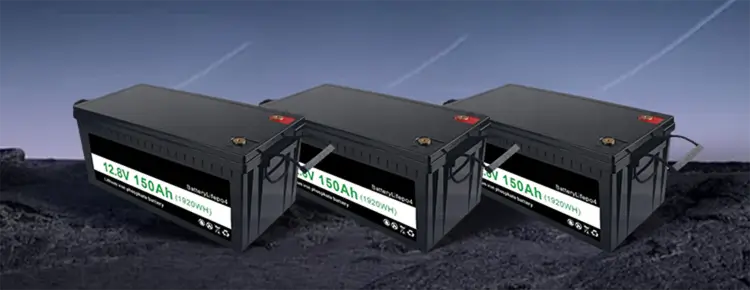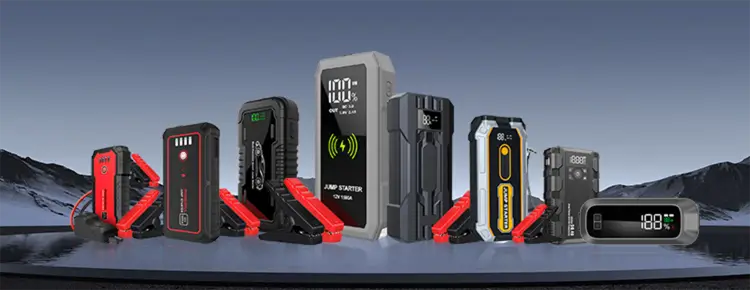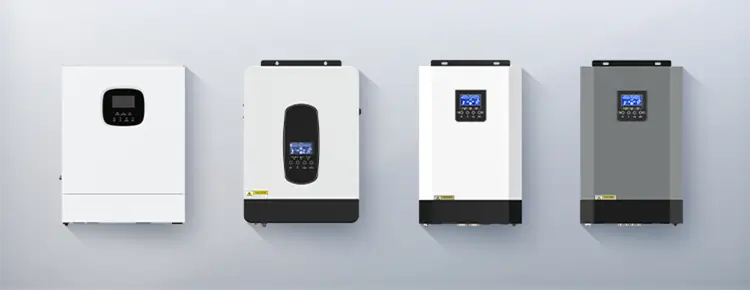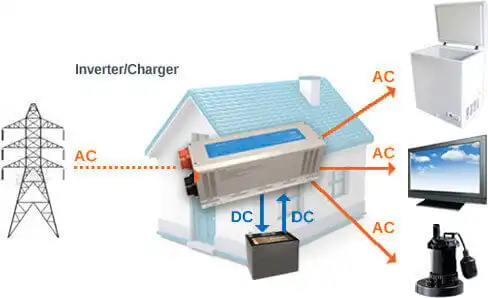



Blog
Hot Category
Latest Blog
21 Jan 2025
Nlelsen
In an energy storage system, the inverter is a key device that connects the battery to the load or the grid. Choosing the right inverter is crucial to the performance, safety, and efficiency of the entire system. Here are some key factors to consider when choosing an inverter:

First, determine the maximum power you need the inverter to provide. This depends on the total power of the loads (such as electrical equipment) you plan to connect. For example, if you have multiple high-power devices (such as refrigerators, air conditioners, etc.) in use at the same time, you need to choose an inverter with a large enough rated power. Moreover, for electrical appliances with high power at startup, a certain power margin must be reserved to ensure that the inverter can provide stable power.
● Each inverter has a specific DC input voltage requirement, such as 12V, 24V, 48V, etc. This must match the voltage of the battery you are using. For example, if your battery is 12V, you cannot choose an inverter that only accepts 24V DC input.
● The AC output voltage of the inverter should be determined according to your usage scenario. If it is used for ordinary household appliances, it is generally 220V (in many countries such as my country), but different countries and regions may have different standards, such as 110V, so make sure that the output voltage of the inverter meets the local power demand.
● For some devices that have high requirements for power quality, such as computers, TVs and other precision electronic equipment, you need to choose an inverter that can generate a pure sine waveform. Pure sine waves can better meet the power needs of these devices and reduce the risk of equipment damage.
● For some low-power consumer appliances, such as some lighting equipment, simple power tools, etc., a modified sine wave or square wave inverter may be able to meet the needs. This type of inverter has a relatively low cost.
● The efficiency of the inverter refers to the degree of energy loss when it converts DC to AC. An efficient inverter can reduce energy waste and improve the economy of the entire energy storage system. The efficiency of mainstream inverters on the market is currently between 80% and 95%, and the efficiency of small-power inverters is required to be no less than 85%.
● Make sure that the load capacity of the inverter can meet the expected use requirements. If the load exceeds the inverter's carrying capacity, the inverter may be overloaded and damaged, affecting the normal operation of the system.
● Choose inverters from well-known brands and reliable suppliers. These brands usually have stricter production standards and quality control systems, and their products are more reliable. For example, brands such as Huawei, Sungrow Power Supply, and Jinlong Technology have a good reputation in the inverter field.
● Understand the warranty policy of the inverter. A longer warranty period and a complete after-sales service network can increase the service life of the inverter and reduce the cost of use. If the inverter can be repaired or replaced in time when it fails, the impact on the operation of the energy storage system can be reduced.
● For high-voltage energy storage batteries (voltage compatibility range is 90-600V or above) and low-voltage energy storage batteries (voltage compatibility range is 40-60V), you need to select matching inverters, namely high-voltage inverters and low-voltage inverters. At the same time, the communication protocol between the inverter and the battery needs to be adapted to ensure that the battery data can be read correctly and the battery can be effectively monitored.
● If your energy storage system is a grid-connected energy storage system, you need to consider the grid-connected function of the inverter and whether it meets the local grid-connected certification requirements. The grid-connected certification standards in different countries and regions are different, and the inverter must meet the standards to safely connect to the grid for operation. If it is an off-grid energy storage system, the grid-connected function is not required, and an off-grid hybrid inverter can be selected.
Therefore, when choosing an inverter, you still need very professional knowledge. If you have enough learning ability, you can study and choose it yourself. If you don’t know much, you can try to consult the manufacturer or buy the finished product directly. At the same time, you must pay attention to safety when using electricity. Finally, I hope everyone can buy an inverter that is good quality, cheap and meets their own needs.